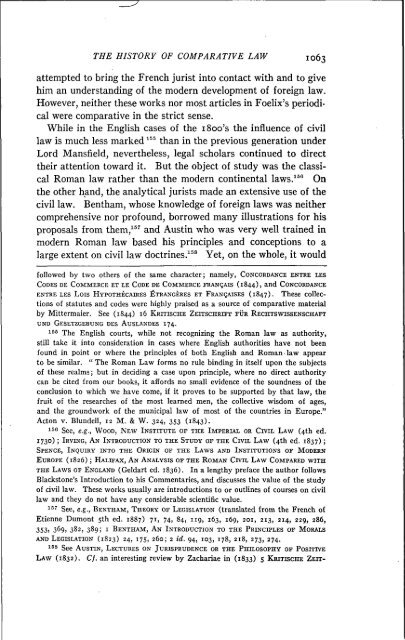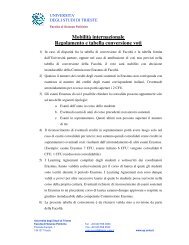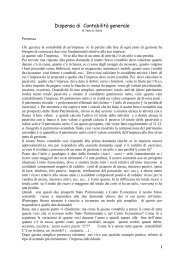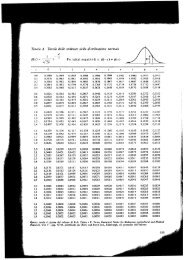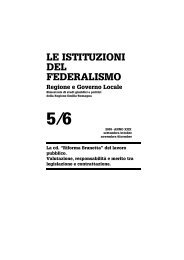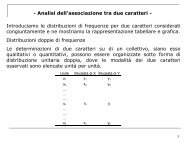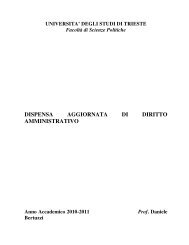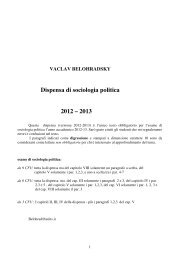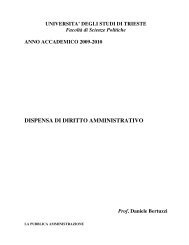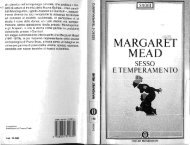THE HISTORY OF COMPARATIVE LAW * ^COMPARATIVE law, as ...
THE HISTORY OF COMPARATIVE LAW * ^COMPARATIVE law, as ...
THE HISTORY OF COMPARATIVE LAW * ^COMPARATIVE law, as ...
Create successful ePaper yourself
Turn your PDF publications into a flip-book with our unique Google optimized e-Paper software.
<strong>THE</strong> <strong>HISTORY</strong> <strong>OF</strong> <strong>COMPARATIVE</strong> <strong>LAW</strong> 1063<br />
attempted to bring the French jurist into contact with and to give<br />
him an understanding of the modern development of foreign <strong>law</strong>.<br />
However, neither these works nor most articles in Foelix's periodical<br />
were comparative in the strict sense.<br />
While in the English c<strong>as</strong>es of the i8oo's the influence of civil<br />
<strong>law</strong> is much less marked ^^° than in the previous generation under<br />
Lord Mansfield, nevertheless, legal scholars continued to direct<br />
their attention toward it. But the object of study w<strong>as</strong> the cl<strong>as</strong>sical<br />
Roman <strong>law</strong> rather than the modern continental <strong>law</strong>s.^^" On<br />
the other hand, the analytical jurists made an extensive use of the<br />
civil <strong>law</strong>. Bentham, whose knowledge of foreign <strong>law</strong>s w<strong>as</strong> neither<br />
comprehensive nor profound, borrowed many illustrations for his<br />
proposals from them,^" and Austin who w<strong>as</strong> very well trained in<br />
modern Roman <strong>law</strong> b<strong>as</strong>ed his principles and conceptions to a<br />
large extent on civil <strong>law</strong> doctrines.^^^ Yet, on the whole, it would<br />
followed by two others of the same character; namely. CONCORDANCE ENTRE LES<br />
CODES DE COMMERCE ET LE CODE DE COMMERCE FRANQAIS (1844), and CONCORDANCE<br />
ENTRE LES Lois HYPO<strong>THE</strong>CAIRES ^TRANGERES ET FRANQAISES (1847). These collections<br />
of statutes and codes were highly praised <strong>as</strong> a source of comparative material<br />
by Mittermaier. See (1844) 16 KRITISCHE ZEITSCHRIFT FUR RECHTSWISSENSCHAFT<br />
UND GESETZGEBUNG DES AuSLANDES 174.<br />
1^5 The English courts, while not recognizing the Roman <strong>law</strong> <strong>as</strong> authority,<br />
still take it into consideration in c<strong>as</strong>es where English authorities have not been<br />
found in point or where the principles of both English and Roman <strong>law</strong> appear<br />
to be similar. " The Roman Law forms no rule binding in itself upon the subjects<br />
of these realms; but in deciding a c<strong>as</strong>e upon principle, where no direct authority<br />
can be cited from our books, it affords no small evidence of the soundness of the<br />
conclusion to which we have come, if it proves to be supported by that <strong>law</strong>, the<br />
fruit of the researches of the most learned men, the collective wisdom of ages,<br />
and the groundwork of the municipal <strong>law</strong> of most of the countries in Europe."<br />
Acton V. Blundell, 12 M. & W. 324, 353 (1843).<br />
I''" See, e.g.. WOOD, NEW INSTITUTE OP <strong>THE</strong> IMPERIAL OR CIVIL <strong>LAW</strong> (4th ed.<br />
1730); IRVING, AN INTRODUCTION TO <strong>THE</strong> STUDY <strong>OF</strong> <strong>THE</strong> CIVIL <strong>LAW</strong> (4th ed. 1837);<br />
SPENCE, INQUIRY INTO <strong>THE</strong> ORIGIN <strong>OF</strong> <strong>THE</strong> <strong>LAW</strong>S AND INSTITUTIONS <strong>OF</strong> MODERN<br />
EUROPE (1826); HALIFAX, AN ANALYSIS <strong>OF</strong> <strong>THE</strong> ROMAN CIVIL <strong>LAW</strong> COMPARED WITH<br />
<strong>THE</strong> <strong>LAW</strong>S <strong>OF</strong> ENGLAND (Geldart ed. 1836). In a lengthy preface the author follows<br />
Blackstone's Introduction to his Commentaries, and discusses the value of the study<br />
of civil <strong>law</strong>. These works usually are introductions to or outlines of courses on civil<br />
<strong>law</strong> and they do not have any considerable scientific value.<br />
i''^ See, e.g., BENTHAM, <strong>THE</strong>ORY <strong>OF</strong> LEGISLATION (translated from the French of<br />
Etianne Dumont sth ed. 1887) 71, 74, 84, 119, 163, 169, 201, 213, 214, 229, 286,<br />
3S3J 369, 382, 389; I BENTHAM, AN INTRODUCTION TO <strong>THE</strong> PRINCIPLES <strong>OF</strong> MORALS<br />
AND LEGISLATION (1823) 24, 175, 260; 2 id. 94, 103, 178, 218, 273, 274.<br />
^°s See AUSTIN, LECTURES ON JURISPRUDENCE OR <strong>THE</strong> PHILOSOPHY <strong>OF</strong> POSITIVE<br />
<strong>LAW</strong> (1832). Cf. an interesting review by Zachariae in (1833) s KRITISCHE ZEIT-


